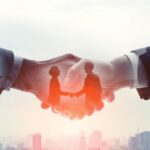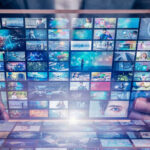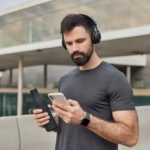The world of digital design and technology is ever-evolving, with new textures and graphic advancements constantly emerging. Among these, the 1.5f8-p1uzt texture has captured the attention of designers, engineers, and digital artists. This unique texture offers a range of applications, bringing life-like detail and immersive visuals to various digital and physical environments. But what exactly is this texture, and how does it contribute to modern design?
Significance of Texture in Various Fields
Textures play a fundamental role in digital and physical environments, influencing how we perceive objects, surfaces, and spaces. In virtual design, textures like the 1.5f8-p1uzt texture are crucial for adding depth, realism, and emotional impact to visuals. Whether used in gaming, virtual reality, or architectural design, high-quality textures bring ideas to life.
What is the 1.5f8-p1uzt Texture?
The 1.5f8-p1uzt texture refers to a specific digital texture recognized for its intricate detail and versatility. This texture is engineered to mimic real-world surfaces, offering a tactile and visual realism that enhances digital applications. Its complex patterns and unique attributes make it ideal for creating immersive experiences, allowing designers to achieve visual precision and realism.
Origins and Development of 1.5f8-p1uzt Texture
Developed by digital design engineers, the 1.5f8-p1uzt texture was created to meet the growing demand for hyper-realistic textures in virtual applications. With advancements in digital rendering software and computing power, the capacity to design and apply intricate textures like the 1.5f8-p1uzt has become feasible. This texture stands out due to its intricate structure, inspired by natural and industrial materials, contributing to its broad usability.
Applications of 1.5f8-p1uzt Texture
The 1.5f8-p1uzt texture has widespread applications across various industries. It’s highly valuable in fields where visual appeal, accuracy, and realism are paramount. These sectors range from digital media and virtual reality to architecture and product design, where it adds an unparalleled layer of depth and authenticity.
Use in Digital Design and Media
In digital design, the 1.5f8-p1uzt texture is frequently employed for creating compelling visuals that are both realistic and aesthetically pleasing. By incorporating this texture, designers can produce artworks, advertisements, and brand assets that capture audience attention and convey a premium quality. The texture’s high level of detail allows for close-up displays without compromising clarity.
Impact on Virtual Reality Environments
Virtual reality relies on realistic textures to create immersive experiences. The 1.5f8-p1uzt texture, with its life-like attributes, enhances VR environments by providing users with a more believable and engaging experience. This texture plays a crucial role in making virtual spaces feel tangible, allowing users to connect with digital worlds on a more realistic level.
Role in Gaming and Animation
Gaming and animation have seen substantial improvements in visual quality with the introduction of detailed textures like 1.5f8-p1uzt. In gaming, it’s used to create lifelike characters, landscapes, and environments that keep players engaged. Animation studios also utilize this texture to produce high-definition visuals, enabling characters and scenes to appear as if they could exist in real life.
Benefits of 1.5f8-p1uzt Texture in Visual Effects
In visual effects (VFX), realistic textures are essential for creating believable effects. The 1.5f8-p1uzt texture allows VFX artists to blend CGI with real footage seamlessly. Whether for film, TV, or digital content, this texture adds a layer of realism that enhances the viewer’s suspension of disbelief, making scenes more impactful and memorable.
1.5f8-p1uzt Texture in Architectural Visualization
Architectural visualization benefits from realistic textures to present design concepts accurately. The 1.5f8-p1uzt texture aids architects in conveying material qualities like wood, metal, or stone. With this texture, clients can visualize spaces with greater detail and make informed design decisions, bridging the gap between conceptualization and realization.
Enhancements in Product Design with 1.5f8-p1uzt Texture
Product designers use the 1.5f8-p1uzt texture to create prototypes that closely resemble the finished product. This texture helps in demonstrating materials, finishes, and overall aesthetics. By offering a high level of detail, designers can showcase their products’ features convincingly, leading to more accurate feedback and design improvements.
Challenges in Implementing 1.5f8-p1uzt Texture
Despite its benefits, the 1.5f8-p1uzt texture presents some challenges in implementation. Its complex structure requires substantial computational resources, making it demanding for real-time rendering in some applications. Additionally, due to its high level of detail, integrating it seamlessly into designs without overwhelming the visual space requires skill and experience.
Techniques for Creating 1.5f8-p1uzt Texture
Creating a 1.5f8-p1uzt texture involves advanced digital modeling and rendering techniques. Professionals use software like Blender, Substance Painter, or Autodesk Maya to develop and refine this texture. By layering materials and adjusting light, shadow, and color, designers can replicate the intricate details that characterize this unique texture.
Future Prospects of 1.5f8-p1uzt Texture
The future of the 1.5f8-p1uzt texture looks promising as digital environments become more lifelike. With advancements in computing power and software, implementing this texture will become more accessible. It will continue to enhance industries that require visual fidelity, such as VR, gaming, and product design, paving the way for even more realistic digital creations.
Conclusion
The 1.5f8-p1uzt texture has revolutionized digital design by providing a unique combination of detail, realism, and versatility. Whether in virtual environments, gaming, product design, or architecture, its contributions are invaluable. As technology progresses, so will the use and accessibility of this innovative texture, solidifying its place in the future of digital design.











